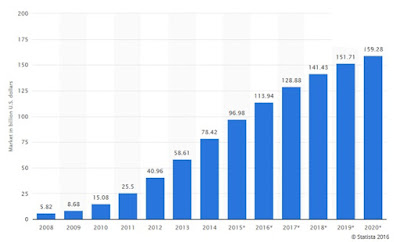Twitter Feed
NCOIC Discusses e-Discovery and Cloud Computing
Last week during its weekly meeting, the NCOIC Cloud Computing Working Group (CCWG) examined some of the legal aspects surrounding electronically stored information. With government use of cloud computing expected…
Take the survey, get a book!
“Cloud Musings”, in cooperation with Aditya Yadav & Associates, is conducting a new cloud computing survey. This short, eight (8) question poll, is designed to gauge general corporate plans around…
Army Knowledge Leaders Study Cloud Computing
This week it was my pleasure to explore cloud computing with Army Knowledge Leaders (AKL) ! AKL is an intensive 2 year experience of training and work rotations designed to develop leadership,…
Northrop Grumman & Lockheed Martin Selected for CANES
Last week the US Navy awarded initial CANES contracts to Northrop Grumman and Lockheed Martin. Navy officials place the contract values at $775M for Northrop and $937M for Lockheed.…
NCOIC Analyses Cloud Computing With SCOPE
Last week, the Network Centric Operations Consortium (NCOIC) Cloud Computing Working Group (CCWG) started it’s work on cloud interoperability in earnest. The first step in their process is the completion…
TASER Awarded: The NGA ASP/ISP Transition Contract
The National Geospatial-Intelligence Agency (NGA) has awarded the Total Application Services for Enterprise Requirements (TASER) contract to: Accenture National Security Services, LLC BAE Systems Information Technology, Inc. The Boeing Company-Autometric,…
EuroCloud Expands Quickly
Last October I introduced EuroCloud as a pan-European business network with the goal of promoting European use of cloud computing. In the intervening three months, the organization has grown to…
Joining NJVC: A Professional Plateau
This week I begin a new and exciting phase of my professional career by joining the NJVC Enterprise Management Team! For those unfamiliar, NJVC is one of the largest information…
DoD Deputy CIO on Secure Information Sharing
Today on Federal Executive Forum, Dave Wennergren, Deputy CIO, Office of the Secretary of Defense, shared his views on secure information sharing. Mr. David M. Wennergren serves as the Deputy…
Training Conference: Cloud Computing for DoD & Government
Please join me at the Cloud Computing for DoD & Government training conference, February 22-24, 2010 at the Hilton Old Town in Alexandria, VA. This unique conference agenda blends interactive…
- Enable cloud service arbitrage based on cost, performance or operational need;
- Help companies migrate operations to the cloud and assist with staff augmentation and training;
- Provide cloud service auditing and SLA monitoring services;
- Help in focusing and managing organizational cloud service demand;
- Provided toolsets to assist in the migration and integration of enterprise applications; and
- Help in change management and the selection and integration of other managed services.
By automating and operationalizing the governance of cloud services, CSBs can efficiently multi-source services and augment them with third party metering and monitoring. Using CSBs, organizations also accelerate their transition to hybrid IT models. This marketplace is typically segmented type of services: cloud brokerage and cloud brokerage enablement, wherein cloud brokerage enablement is further segmented into internal and external brokers. When used internally, cloud enablement platforms helps enterprises adopt the new hybrid IT and multi-sourced operating model. By building organic expertise, companies can personalize IT service consumption and unify
IT service delivery through the use of a corporate self-service store, a dynamic service marketplace, and continuous delivery. This centralized, supply chain approach unifies the order, execution, and management of multi-sourced solutions across legacy and cloud resources, by centrally delegating and tracking execution.
(This post was brought to you by IBM Global Technology Services. For more content like this, visit Point B and Beyond.)
( Thank you. If you enjoyed this article, get free updates by email or RSS – © Copyright Kevin L. Jackson 2016)
Cloud Computing
- CPUcoin Expands CPU/GPU Power Sharing with Cudo Ventures Enterprise Network Partnership
- CPUcoin Expands CPU/GPU Power Sharing with Cudo Ventures Enterprise Network Partnership
- Route1 Announces Q2 2019 Financial Results
- CPUcoin Expands CPU/GPU Power Sharing with Cudo Ventures Enterprise Network Partnership
- ChannelAdvisor to Present at the D.A. Davidson 18th Annual Technology Conference
Cybersecurity
- Route1 Announces Q2 2019 Financial Results
- FIRST US BANCSHARES, INC. DECLARES CASH DIVIDEND
- Business Continuity Management Planning Solution Market is Expected to Grow ~ US$ 1.6 Bn by the end of 2029 - PMR
- Atos delivers Quantum-Learning-as-a-Service to Xofia to enable artificial intelligence solutions
- New Ares IoT Botnet discovered on Android OS based Set-Top Boxes



